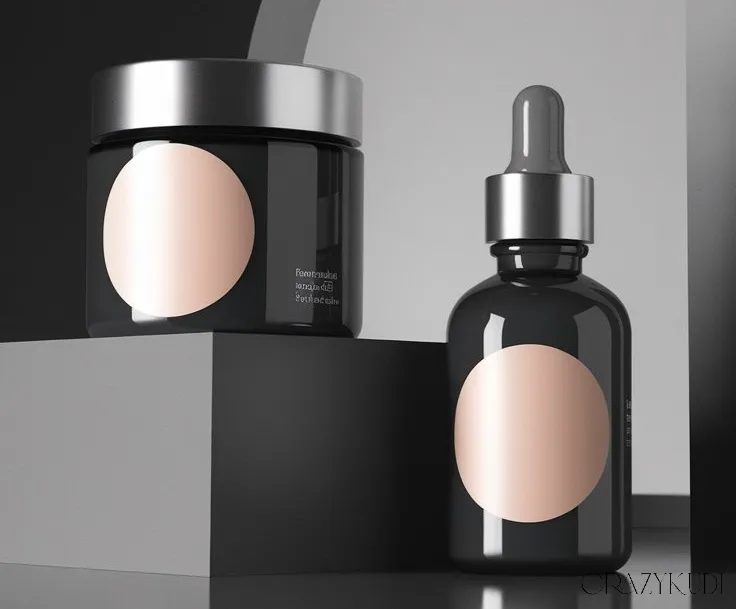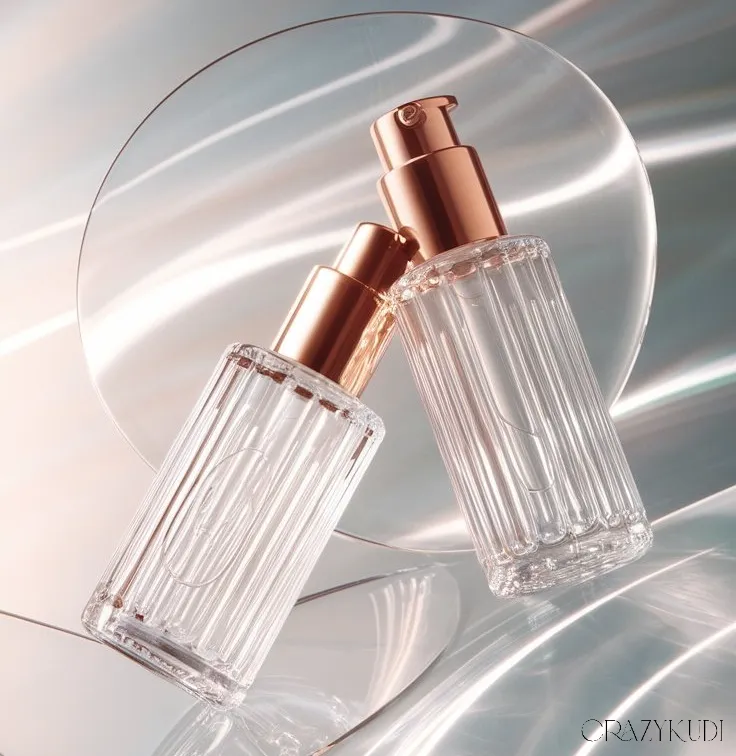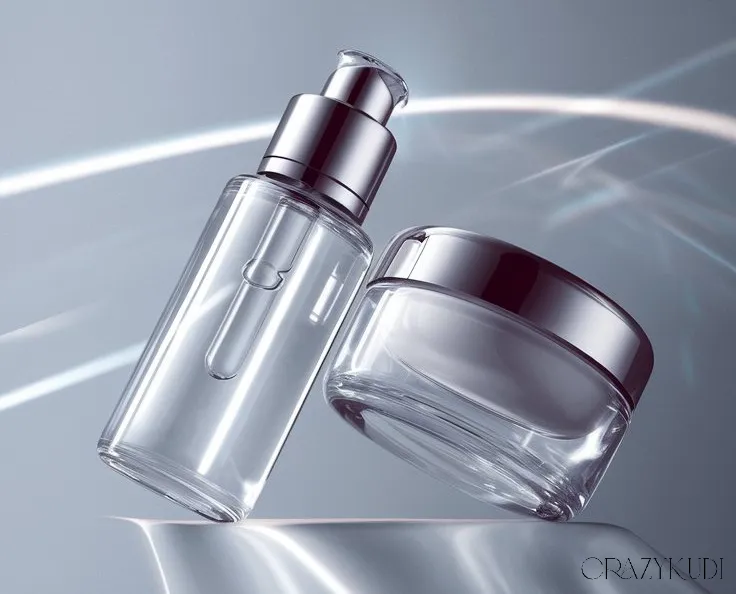In the ever-evolving world of skincare, certain ingredients rise to celebrity status, promising miraculous results and transformative benefits. Two such superstars—retinol and hyaluronic acid—have dominated beauty conversations for years. But do these popular ingredients truly deserve their holy grail status? Let's separate fact from fiction with expert insights and discover what might work best for your unique skin concerns.
The Hyaluronic Acid Phenomenon
Hyaluronic acid has become synonymous with hydration in skincare circles, and for good reason. This molecule can hold up to 1,000 times its weight in water, making hyaluronic acid serum a powerhouse ingredient for addressing dryness.
"Hyaluronic acid is one of the few ingredients that delivers immediate results," explains Dr. Maya Chen, dermatologist and skincare researcher. "When you apply a hyaluronic acid serum for skin, you'll notice plumpness and hydration almost instantly, which is why it's become so popular."
The best candidates for hyaluronic acid products:
- Those seeking a face serum for dry skin
- People living in dry climates
- Aging skin that's losing natural moisture
- Anyone wanting a plumper appearance without invasive procedures
However, not all hyaluronic acid serums are created equal. The best hyaluronic acid serum products contain varying molecular weights to penetrate different skin layers. Some also combine hyaluronic acid with other hydrators for enhanced effects.

The Retinol Revolution
Retinol, a vitamin A derivative, has maintained its reputation as the gold standard for anti-aging for decades. The best retinol products can dramatically improve skin texture, reduce fine lines, and help with cell turnover.
"Retinol remains unmatched for its clinically proven ability to stimulate collagen production and accelerate cell renewal," says aesthetician Sarah Williams. "However, it's also one of the most misunderstood and misused ingredients."
The benefits of incorporating a retinol serum for face include:
- Reduction in the appearance of fine lines and wrinkles
- Improvement in skin texture and tone
- Help with stubborn acne and post-inflammatory hyperpigmentation
- Boosting collagen production for firmer skin
Popular options like CeraVe retinol and CeraVe retinol serum offer gentler formulations that combine retinol with nourishing ceramides to reduce irritation, making them accessible entry points for retinol beginners.
Also read: 8 Powerful Benefits of Adding Vitamin C Serum to Your Night Skincare Routine to Banish Dark Circles
The Alternative Players
For those with sensitive skin or those seeking natural alternatives, ingredients like bakuchiol have entered the market as gentler options.
"Bakuchiol serum offers similar benefits to retinol but with much less irritation," notes holistic esthetician Emma Roberts. "It's been a game-changer for my clients who couldn't tolerate traditional retinoids."
Other notable alternatives gaining popularity include:
- Peptide complexes for collagen support
- Niacinamide for pore refinement
- Plant extracts with antioxidant properties

Targeting Specific Concerns
For Oily, Acne-Prone Skin
If you're searching for a face serum for oily skin, look for lightweight, non-comedogenic formulations. A good serum for oily skin often contains ingredients like niacinamide, salicylic acid, or tea tree oil alongside hydrators that won't clog pores.
"Many people with oily skin avoid serums altogether, which is a mistake," says cosmetic chemist Dr. Robert Kim. "The right skin serum for oily skin can actually help balance oil production rather than exacerbate it."
For Enlarged Pores
Those concerned with texture issues often seek a specialized serum for open pores. The best serum open pores products typically contain ingredients that help refine skin texture while providing gentle exfoliation.
Brands like Dot and Key serum have formulations specifically targeting pore concerns, often combining pore-minimizing ingredients with hydrating compounds for balanced results.
Also read: How to Choose the Right Serum for Your Skin Concerns
Combining Powerhouse Ingredients
The conversation around vitamin C and retinol combinations has intensified in recent years. When used correctly—vitamin C in the morning for antioxidant protection and retinol vitamin C separated in your routine—they can provide comprehensive skin benefits.
"The key is understanding how to layer products effectively," explains skincare formulator Jessica Tang. "A best facial serum might contain multiple active ingredients, but they need to work synergistically, not fight each other for effectiveness."
Making Smart Choices
With endless options claiming to be the top face serums, how do you choose what's right for you? Consider these factors:
- Skin type and concerns: Different ingredients address different issues
- Sensitivity level: Not everyone can tolerate high-strength actives
- Climate and environment: Your skincare needs change with the seasons
- Age and skin maturity: Preventative versus corrective approaches
- Budget: Effective products exist at various price points
"The best regimen is one that addresses your specific concerns and that you'll actually stick with," says Dr. Chen. "Sometimes good serums for face care don't need to contain the trendiest ingredients—consistency with the right formulation for your skin is what matters most."

The Verdict: Holy Grail or Just Hype?
So, are retinol and hyaluronic acid worthy of their legendary status? The expert consensus is yes—with caveats.
Hyaluronic acid delivers on its hydration promises but works best when:
- Used in appropriate concentrations
- Applied to slightly damp skin
- Sealed with a moisturizer
- Combined with other beneficial ingredients
Retinol remains unmatched for certain concerns but requires:
- Patience (results take 8-12 weeks minimum)
- Careful introduction to avoid irritation
- Consistent use and sun protection
- Appropriate product selection for your skin type
Also read: How to Remove Pimples Naturally and Permanently: Complete Guide
Beyond the Trends
While these ingredients have earned their reputation through scientific backing and real results, the true "holy grail" is finding what works for your unique skin. Sometimes this means embracing celebrated ingredients like retinol and hyaluronic acid, and other times it means discovering alternatives like bakuchiol or specialized formulations for your specific concerns.
Remember that skincare is ultimately personal—what works for a celebrity or influencer might not be right for you. Listen to your skin, consult with professionals when possible, and don't be afraid to look beyond the hype to find your perfect skincare solution.
Whether you choose a beloved CeraVe retinol serum, a specialized serum for face dry skin, or an innovative new formula, the best skincare regimen is one that delivers results for your unique skin needs—regardless of what's trending on social media.

